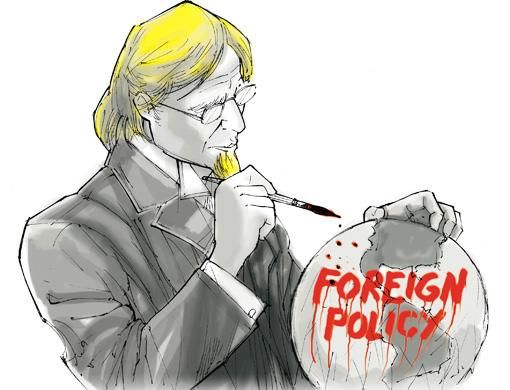Five years later, despite modest success, the world is a more dangerous place. Anti-Americanism has increased not only across the Muslim world but also globally. Ironically, polls show that many in the world now see the US as "arrogant, ruthless and a danger to world peace".
Despite its promises, the administration has failed to deliver on its pledge (and excuse) at the time of the invasion of Iraq, to promote democracy in the Middle East and reinvigorate the roadmap in the Israeli-Palestinian conflict.
What are the chances the US will succeed in preventing another 9/11?
Any chance will require a new administration and a president, whether Republican or Democrat, who is prepared to take bold, short and long term foreign policies. This would mean not only support the existence and security of the state of Israel and the creation and security of a Palestinian state but also be evenhanded in its criticism of violence and terror whether committed by the Palestinians or the Israeli military.
The next administration would not only have to adopt a similar policy and actually follow it, but also be willing to depart from America's policy of "Israeli exceptionalism", holding Israel to the same standards of other states in the region, insisting on compliance with UN Security Council resolutions. American policy has to be more critical, evenhanded and less driven by domestic lobbies and policy concerns. The sole criterion has to be what is best for America internationally as well as nationally.
A new administration would have to heed those military experts who counsel that while the military can kill, capture and contain terrorists, the military is not equipped to fight a war against global terrorism.
Listen carefully
The attempt to limit the growth of terrorism requires a strong public diplomacy programme to win minds and hearts.
The administration will need to listen more carefully to the voices of 1.3 billion Muslims and not rely on militant ideologues (neocons, militant religious right leaders and Islamophobic experts and political commentators) or autocratic Muslim rulers/ allies who use the war as a smokescreen for greater control and repression of any and all opposition.
US foreign policymakers require a better understanding of how Muslims see the world and, in particular, how they regard the United States.
The Gallup World poll and its ground breaking, in-depth survey of Muslims from North Africa to Southeast Asia as well as other polls provide access to the voices of Muslims globally, their issues and concerns.
The question "Why do they hate us?" raised in the immediate aftermath of 9/11 looms large following continued terrorist attacks and the dramatic growth of anti-Americanism.
A common answer provided by some politicians and experts has been, "They hate our way of life, our freedom, democracy, and success."
While many believe anti-Americanism is tied to a basic hatred of the West and deep West-East religious and cultural differences, the data above contradicts these views.
Top three
When asked what they admired most about the West, both extremists and moderates had the identical top three spontaneous responses: (1) Technology; (2) The West's value system, hard work, self-responsibility, rule of law and cooperation; and (3) Its fair political systems, democracy, respect for human rights, freedom of speech, and gender equality.
A significantly higher per cent of potential extremists than moderates (50 per cent versus 35 per cent) believe that "moving towards greater governmental democracy" will foster progress in the Arab/Muslim world. No significant difference exists between the percentage of potential extremists and moderates who said "better relations with the West concerns me a lot".
In addition, Muslim assessments of individual Western countries demonstrate that Muslim views do not paint all Western countries with the same brush.
America will have to be more creative in its foreign policies. At the same time, the US and its European allies must distinguish more clearly between moderate and extremist Islamists or Islamic activists, and be willing to deal with moderate Islamists. Finally, there can be no more double standards whether in the promotion of democracy, compliance with international law, or the use of diplomacy not threats of military action when dealing with Iran or Syria as it has consistently with North Korea.
Professor Dr John L. Esposito is university professor and founding director of the Prince Alwaleed Bin Talal Centre for Muslim-Christian Understanding. His more than 35 books include "Unholy War: Terror in the Name of Islam" and "Who Speaks for Islam: Listening to the Voices of a Billion Muslims".










